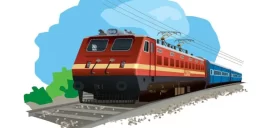Crew links are drawn up for the scheduled trains passing through a division, in consultation with neighbouring divisions. A crew link must satisfy several conditions on working hours, rest hours, etc., for the loco crew. The average working hours for a crew member in a fortnight should not exceed 104 hours (but should be as close to 104 as possible). Actual continuous running hours on a train on a single cycle of duty should not exceed 10 hours at a time (this used to be higher at 12 hours, but was reduced to 10 hours in 1973). In exceptional circumstances crews may work more than 10 hours at a time, but the running time should not exceed 12 hours under any cases, and crew are entitled to rest as soon as 12 hours are up regardless of where they happen to be located. No more than 6 consecutive runs should include night-time duty. Average headquarters (or home station) rest and out-station rest should be 18 and 8 hours respectively. Home station rest may in some cases be reduced but should not be less than 12 hours, except for emergency situations where it may be reduced to 8 hours. Periodic rest each month must include four 30-hour rest periods, or five 22-hour rest periods (each including one night in bed). These periodic rests are generally staggered uniformly through the month, and successive rest periods should be within 10 days of one another.
Running crew (drivers, firemen or assistant drivers, guards) sign on for the run of a train – guards 45 minutes before departure, loco crew 1 hour from the locomotive’s departure from the shed. Sign off is normally at the same time as when the train arrives at the yard (for the guard) or the loco is returned to the shed (for the loco crew). The sign on and sign off times are used for reckoning continuous running times.
Except for some ‘prestigious’ trains (Rajdhanis, etc.) and crack goods trains and other high-priority trains which may have dedicated crew, normally crew are booked for trains on a first-in, first-out basis depending on which crew have road knowledge of the routes for trains that need to be staffed.
Source – IFRCA.org
This entry was posted in 2 Railway Employee, STUDY NEW, Railway Employee











